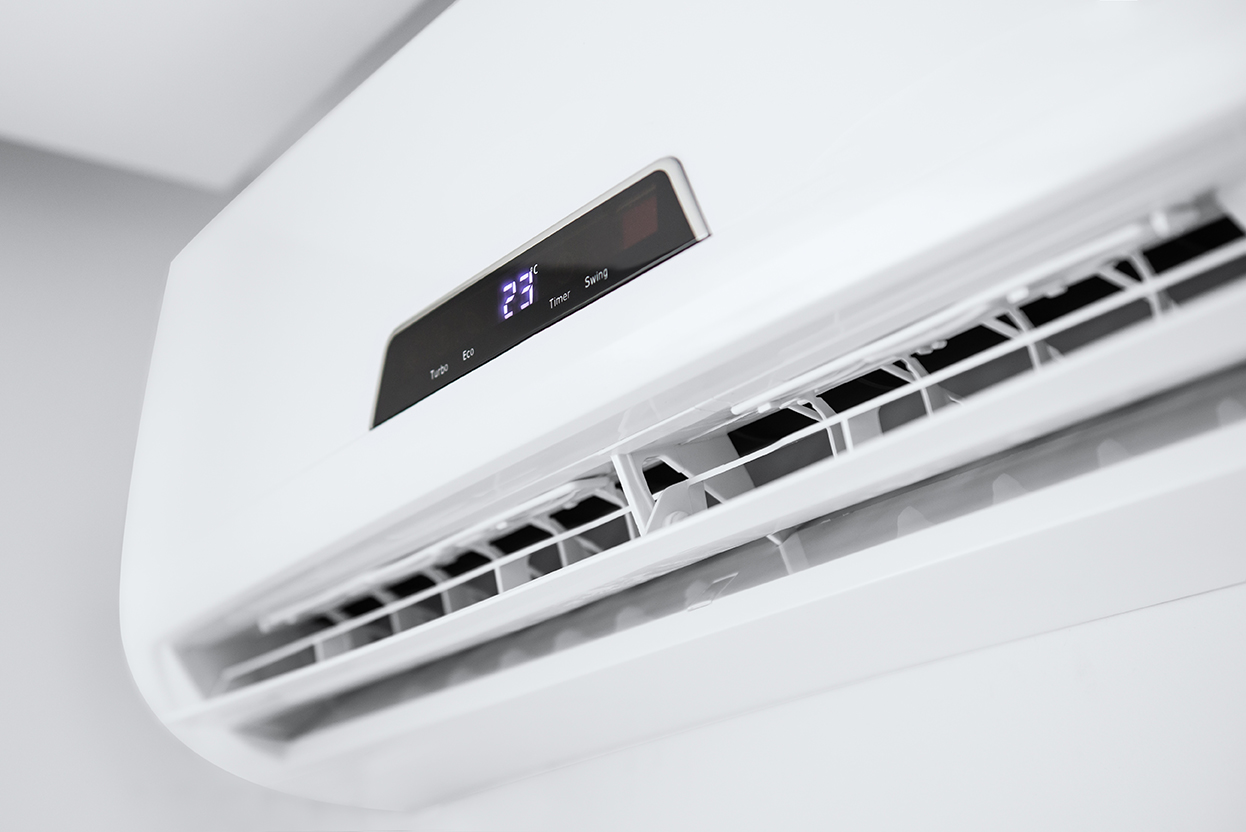What is Clean Heating & Cooling?
Renewable energy isn’t just clean electricity from solar panels and wind turbines – it's also renewable thermal energy that provides energy-efficient home comfort without the use of fossil fuels like oil, propane, or natural gas. Clean heating and cooling equipment plays a key role in Connecticut’s big push for reductions in greenhouse gas emissions that contribute to climate change.
A heat pump operates by moving air, rather than generating it, to transfer heat. It draws heat from the air (air source heat pump) or from the ground (ground source heat pump) to heat your home in the colder months, while doubling as an efficient cooling system in the warmer months. A heat pump keeps your home at a comfortable temperature year-round with minimal maintenance.
A heat pump is an electrical system, so running one will add to your electrical use. In many cases, that additional electrical use is offset by savings elsewhere, such as a propane or oil heating fuel bill. To maximize heating and cooling efficiency, we recommend properly weatherizing your home. Start with a Home Energy Solutions(SM) assessment and service to get your home evaluated for insulation. Information about insulation rebates can be found here.
Another heat pump technology to consider is heat pump water heaters. Heat pump water heaters efficiently pull heat from the surrounding air to heat water rather than relying on fossil fuels. Although we do not offer rebates on solar water heaters, they are another water heating option. Solar water heaters use sunlight to generate hot water for your home.
Available Rebates
Heat Pumps
Up to $15,000 of combined incentives per home
Up to $15,000 in rebates per home
Water Heating
Heat Pump Water Heater
$650 Instant Discount per Qualifying Unit
Available Financing
Connecticut promotes Clean Heating & Cooling with low-interest financing packages.
Clean Energy Resources
The following guides can help you determine which clean heating and cooling technologies may be a good fit for your home or business.
- Your Guide to Air Source Heat Pumps
- Your Guide to Ground Source Heat Pumps
- Your Guide to Heat Pump Water Heaters
- Your Guide to Solar Hot Water
Other helpful resources
- Learn More About Heat Pumps
- Heat Pump User Tips
- Schedule a Heat Pump Consultation
- Air Source Heat Pump Check List
- Questions for Your Installer
- Find a Contractor participating in the Energize Connecticut℠ Heat Pump Installer Network
- Additional consumer guidance on air source heat pumps (from New England Energy Efficiency Partnerships)
Why upgrade to Clean Heating & Cooling?
Heat pumps use as little as a third of the energy of traditional HVAC systems, providing efficient, quiet, and smart temperature control.
By harnessing energy from the sun, solar hot water heaters use little electricity.
The high efficiency of heat pumps translates into significant cost savings on your overall energy bills. Cleaner technology also means less maintenance, providing further potential savings.
Heat pumps offer a flexible solution for your rear-round heating, cooling and dehumidification needs in one efficient system.
Operating without fossil fuels, heat pumps, heat pump water heaters, and solar hot water heaters produce no direct emissions. Lower your carbon footprint by switching to clean, fossil-free heating and cooling technologies.
The Residential New Construction Program offers guidance and financial incentives to help you, your architect, and your builder design and construct a home that is a model for energy efficiency and clean heating and cooling. Additional rebates are available for homes that meet higher performance standards such as LEED and Passive House.





